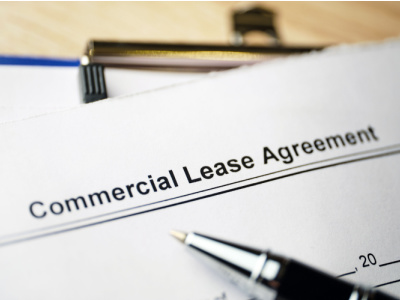9 Issues to Address in Commercial Lease Agreements

A commercial lease agreement serves as a legal contract between a property owner and a tenant who will be renting and occupying commercial property. It outlines the terms and conditions under which the tenant can occupy and use the space. Business owners who are entering into these agreements, and real estate owners who plan to lease commercial properties must thoroughly review and understand all aspects of lease agreements before signing. An attorney who has experience in commercial real estate law can help negotiate the terms of a lease and ensure that both landlords and tenants fully understand their rights and obligations.
The Importance of Reviewing Commercial Leases
Commercial lease agreements are complex documents that cover various aspects of the landlord-tenant relationship. Failing to address key issues in these agreements can lead to disputes, financial losses, or even legal consequences down the line. By addressing these issues upfront, both parties can ensure clarity, fairness, and protection throughout their leasing arrangement.
Key Issues to Consider
- Rent amount: The amount of monthly rent that will be paid should be clearly stated in the lease agreement along with any provisions for increases over time.
- Lease term: The duration of the lease should be specified in detail, including the start date and end date. A lease may also provide an option to renew at the end of the term.
- Maintenance responsibilities: A lease should specify who will be responsible for maintenance tasks such as repairs, landscaping, snow removal, etc. By clearly outlining these responsibilities, the parties can avoid disputes over what types of maintenance will be needed and who will be responsible for paying the related expenses.
- Use restrictions: A lease may include restrictions for how the space can be used or modified. Some leases may prohibit certain activities or require prior approval for alterations.
- Tenant improvements: If any improvements or renovations will be necessary to customize the space for the needs of a specific business, a lease should clarify what types of modifications may be made and who will be responsible for the related costs. A lease may also specify that a tenant must obtain written approval from the landlord before making certain types of modifications.
- Insurance: Different types of insurance coverage may be required by the lease agreement, such as general liability insurance or property insurance. A lease should specify whether the landlord or tenant will be responsible for obtaining insurance policies and paying for coverage.
- Subleasing: If a tenant may consider subleasing all or part of the space in the future, a lease agreement should specify whether this will be allowed and any conditions or restrictions that may apply.
- Termination: Both parties should fully understand their options for terminating the lease agreement. A lease may specify the requirements for termination and any applicable fees or penalties that will apply.
- Rights and responsibilities: A commercial lease should clearly define both parties’ rights and responsibilities regarding repairs, utilities, common areas, signage, parking, etc., to avoid misunderstandings or disputes later on.
Contact Our Naperville Commercial Lease Attorney
Navigating the various legal concerns involved in negotiating commercial lease agreements can be a complex and overwhelming process. Landlords or tenants can work with an experienced real estate attorney who understands the issues that may be addressed in commercial leases. At the Gierach law firm, our DuPage County commercial real estate lawyer can review lease agreements and negotiate terms that align with a landlord’s or tenant’s business goals while protecting their legal rights. To set up a consultation and learn how we can assist with real estate and business law concerns, contact us at 630-756-1160.
Practice Areas
Archive
+2018
+2016
Please note: These blogs have been created over a period of time and laws and information can change. For the most current information on a topic you are interested in please seek proper legal counsel.














